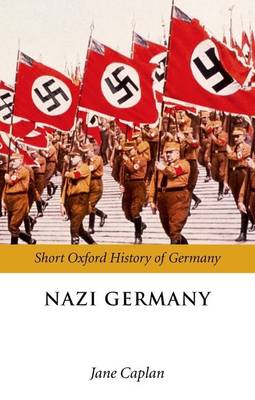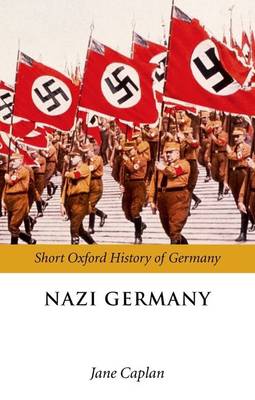
- Afhalen na 1 uur in een winkel met voorraad
- Gratis thuislevering in België vanaf € 30
- Ruim aanbod met 7 miljoen producten
- Afhalen na 1 uur in een winkel met voorraad
- Gratis thuislevering in België vanaf € 30
- Ruim aanbod met 7 miljoen producten
Zoeken
Omschrijving
The history of National Socialism as a movement and a regime remains one of the most compelling and intensively studied aspects of twentieth-century history, one whose significance extends far beyond Germany or even Europe. Featuring ten chapters by leading international experts, this volume presents an up-to-date and authoritative introduction to the history of Nazi Germany.
Opening with an introduction delineating the challenges this period of history has posed to historians since 1945, Nazi Germany continues on with chapters that explain how Nazism emerged as an ideology and a political movement; how Hitler and his party took power and remade the German state; and how the Nazi "national community" was organized around a radical and eventually lethal distinction between the "included" and the "excluded." Later chapters discuss the complex relationship between Nazism and Germany's religious faiths; the perverse economic rationality of the regime; the path to war laid down by Hitler's foreign policy; and the intricate and intimate intertwining of war and genocide. The volume concludes with a final chapter on the aftermath of National Socialism in postwar German history and memory.
Opening with an introduction delineating the challenges this period of history has posed to historians since 1945, Nazi Germany continues on with chapters that explain how Nazism emerged as an ideology and a political movement; how Hitler and his party took power and remade the German state; and how the Nazi "national community" was organized around a radical and eventually lethal distinction between the "included" and the "excluded." Later chapters discuss the complex relationship between Nazism and Germany's religious faiths; the perverse economic rationality of the regime; the path to war laid down by Hitler's foreign policy; and the intricate and intimate intertwining of war and genocide. The volume concludes with a final chapter on the aftermath of National Socialism in postwar German history and memory.
Specificaties
Betrokkenen
- Uitgeverij:
Inhoud
- Aantal bladzijden:
- 344
- Taal:
- Engels
- Reeks:
Eigenschappen
- Productcode (EAN):
- 9780199276868
- Verschijningsdatum:
- 15/07/2008
- Uitvoering:
- Hardcover
- Formaat:
- Genaaid
- Afmetingen:
- 140 mm x 218 mm
- Gewicht:
- 521 g

Alleen bij Standaard Boekhandel
+ 915 punten op je klantenkaart van Standaard Boekhandel
Beoordelingen
We publiceren alleen reviews die voldoen aan de voorwaarden voor reviews. Bekijk onze voorwaarden voor reviews.










